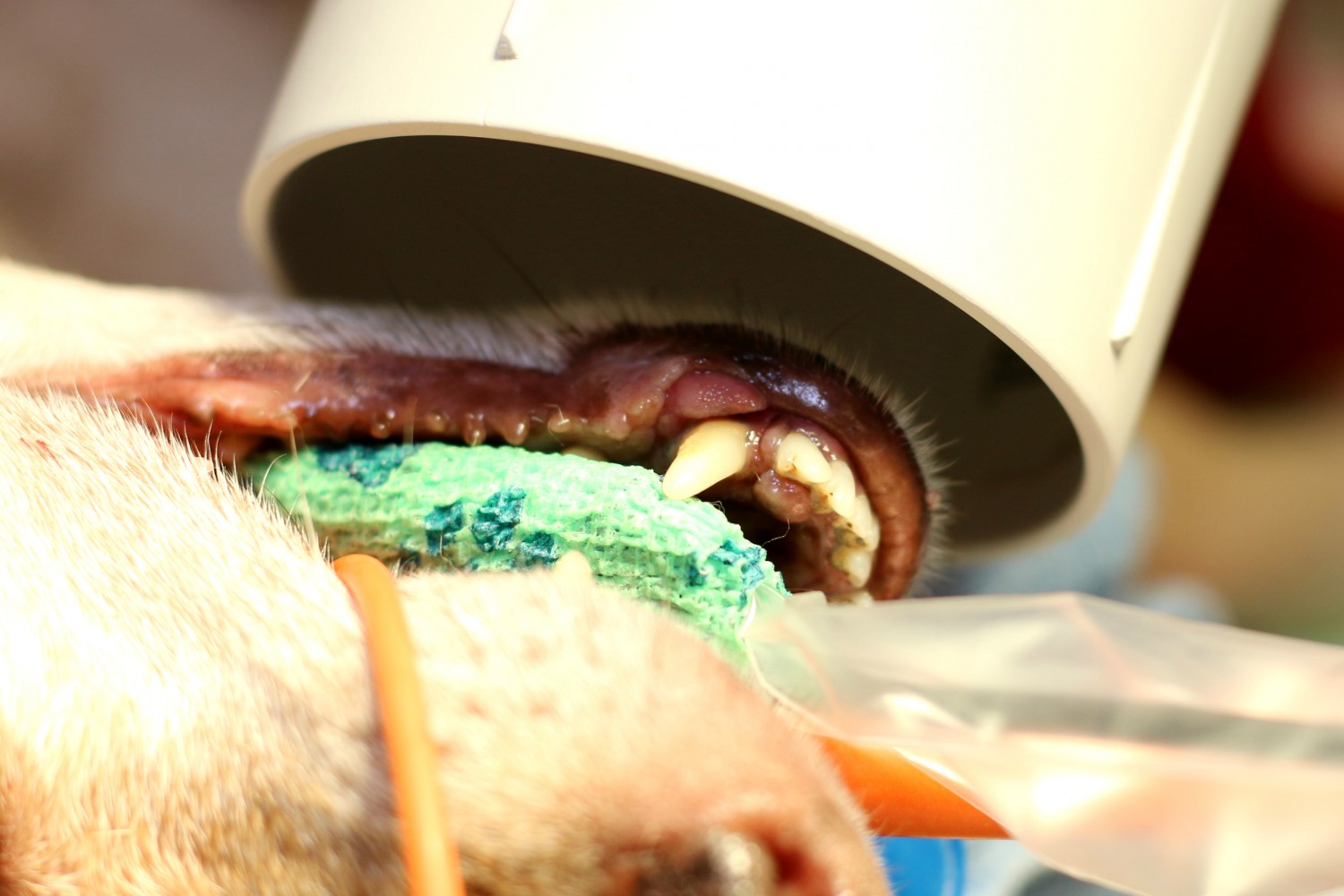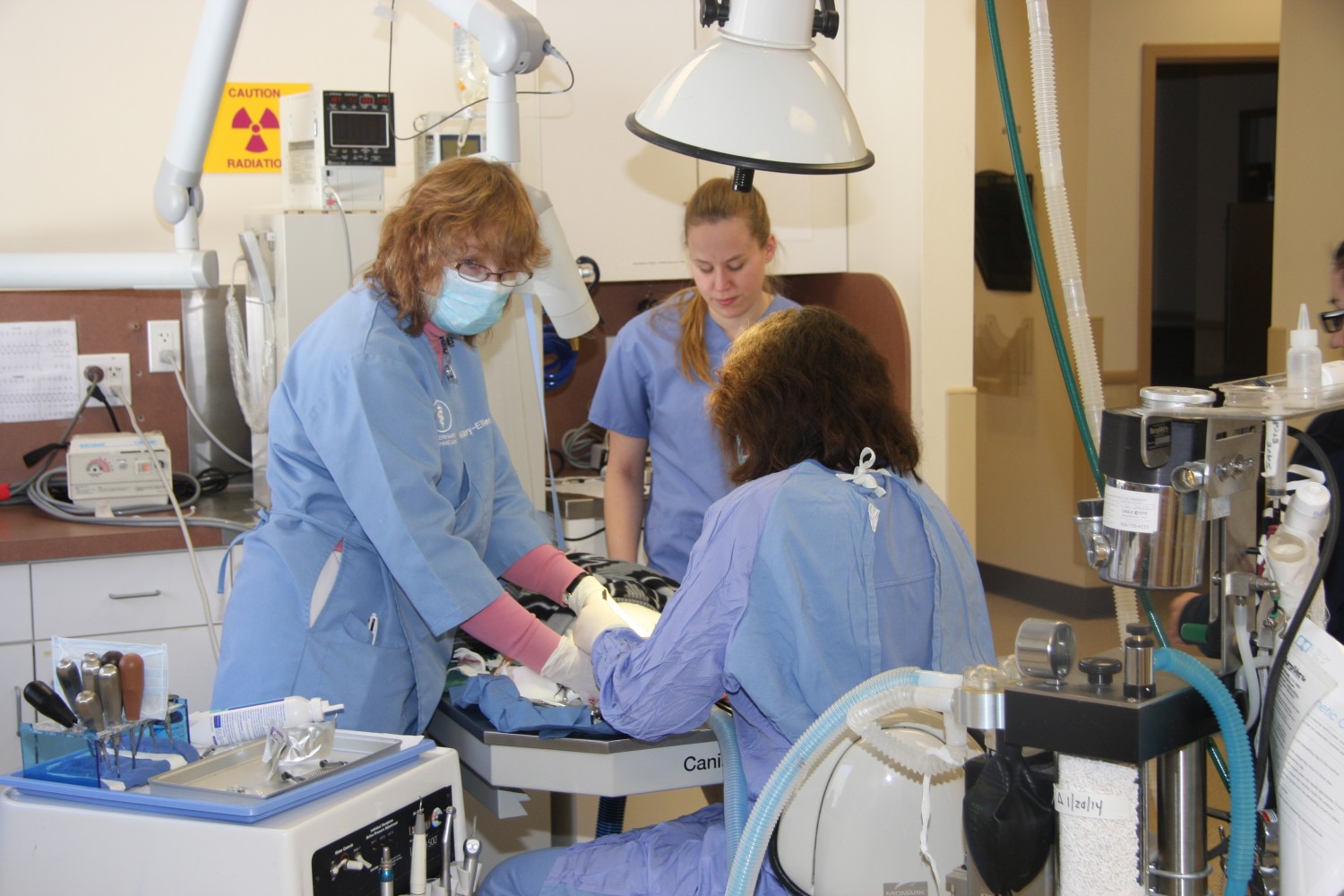|
Digital Dental Radiology and Prophylaxis

Did you know that dental disease is the most common disease in cats and dogs?
Just as with people, dental disease in dogs and cats can cause pain and infection. Pets rarely show outward signs of pain, which is why regular examinations and dental care are very important.
Dental plaque and halitosis is a source of infection in animals, it is painful and will progress to tooth loss. It is not possible to do a complete dental cleaning on animals unless they are under anesthesia. Animals need to be under anesthesia so we can ultrasonically scale the inside and outside of the teeth as well as under the gum line.
If there is visible tartar on the teeth then you should schedule an appointment for your pet. After a thorough examination of your pets mouth, a professional cleaning and/ or oral surgery to remove diseased teeth may be recommended. Brushing the teeth when tartar is present does not help the pet and is in fact often painful.
|
Pets develop dental disease from not brushing the teeth and not having the teeth professionally cleaned. We brush our teeth every day and see the dentist regularly to prevent dental disease and the same steps are needed in pets affected with periodontal disease.
Some breeds of dogs are especially prone to dental disease. Smaller dogs have crowded teeth with little space between teeth, and often have more severe plaque accumulation and periodontal disease.
Brushing the teeth EVERY DAY is the only way to prevent dental disease in pets, as well as having the teeth cleaned by a veterinarian on a regular basis. Using dental diets, sprays, sealers and wipes can help but not as much as brushing. Feeding hard food or treats does not prevent dental disease.
Comprehensive dental hygiene includes irrigation with an antibacterial rinse, scaling (removing tarter) from all teeth both above and below the gum line, polishing the teeth, applying fluoride and applying a dental sealant.
Dental x-rays for pets are the same as for people...we use the same equipment! Dental x-rays allow us to evaluate the tooth below the gum line as well as evaluate the enamel of teeth. Every effort is made to save the teeth in your pet, however if the tooth is unhealthy it will be surgically extracted. Our office has invested in dental radiology equipment, anesthetic monitoring equipment and high speed dental equipment to ensure your pet gets the best possible dental care we can offer.
Many clients express concern about their pets ability to eat after losing teeth, however removing diseased teeth is actually better for your pet. No teeth is better than bad teeth! In many cases, once the diseased teeth are removed the pet actually eats better because the pain and infection are gone!
Pet owners often don't recognize how severe their pet's dental disease is because the pet is eating food normally. Animals have a strong natural instinct to hide pain. By the time they quit eating, the pain is more severe than the will to survive and eat. Normal eating is not a reliable indicator of pain. Often the doctor can tell how painful the pet is by touching the teeth, many pets will tremor on touching the painful tooth.
Pets are never too old to have pain and infection treated. Most clients recognize a major change in their pets behavior after dental disease is appropriately treated. Clients frequently report that their pet is so much happier and active after removing infected teeth.
It is important to try to prevent dental disease from developing in your pet, prophylaxis. Brushing the teeth at home and having dental cleanings done when minimal tarter is present will prevent major oral surgery. Unfortunately, many pets we see have severely diseased mouths that require more advanced, and costly, procedures. Feel free to discuss your pets dental condition with one of our veterinarians so we can develop a treatment and prevention plan to allow your pet to have a pain and infection free mouth!
Dental Care in dogs and cats is an important step in maintaining their health and longevity.

|
